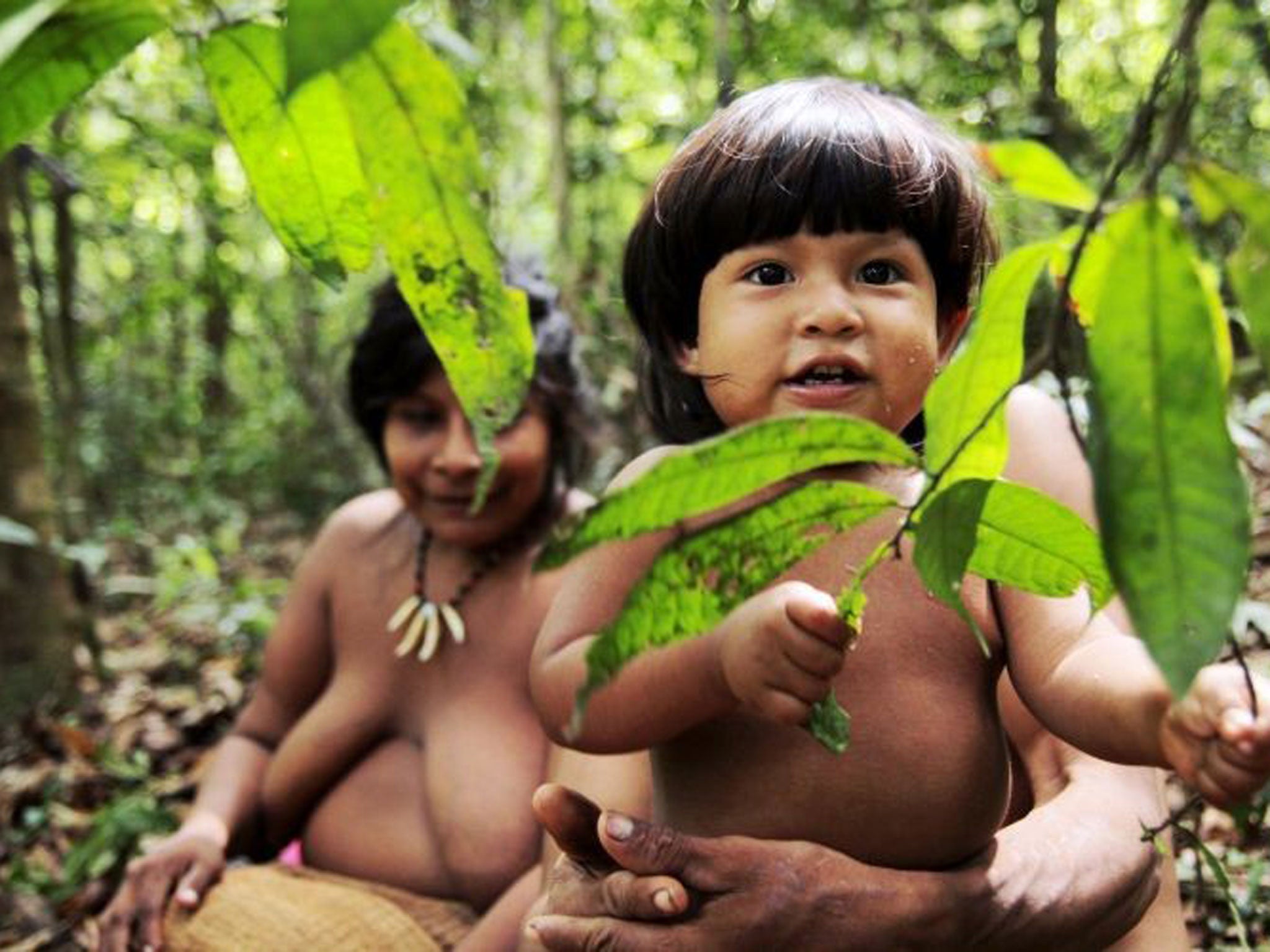Amazon land returned to one of the most endangered ethnic tribes on the planet
Illegal settlers are evicted from an indigenous homestead

The homes are ramshackle structures made with palm-frond roofs and weather-beaten walls caked in sun-dried mud. It does not take much for a bulldozer to flatten the flimsy buildings, erected in a tree-felled clearing in the middle of the Brazilian Amazon rainforest in the north-eastern state of Maranhao. In a few ruthless moments, years of memories and family and farming life existence are destroyed.
Under different circumstances, the demolition of the homes, leaving dozens of people destitute, would be severely condemned. But this extreme action is being hailed as a triumph. It has the backing of the Brazilian government, international support from the campaigning group Survival International and a federal court warrant is legalising the process.
The razed homes belonged to loggers and cattle ranchers, settlers who have been living illegally on indigenous Awa-Guaja Indian tribal land for decades. The damage wreaked by their years of occupation has left a 30 per cent deforestation blight on 116 hectares of Awa territory.
Last week, after years of pleading for their nomadic hunter-gatherer life to be preserved, the Awa began to see results.
A 40-day federal court deadline ordering non-indigenous invaders to leave the reservation voluntarily with all their belongings had expired. Twenty-four hours later, the national guard supported by the federal police began evicting squatters who had refused to move. An earlier report had claimed some were armed, but it was unfounded. A total of 427 families are now being removed.
Survival International claimed that government sources had revealed that international pressure forced the Brazilian government act. Last year, the Justice Ministry received 56,000 requests for the reservation to be protected. The Inter-American Commission on Human Rights also demanded answers from the Brazilian government.
The Awa Indians are one of the most endangered ethnic tribes on the planet. Almost a quarter – 100 out of 450 – of the Awa remain uncontacted and at particular risk from diseases that can be brought by outsiders.
“They have destroyed our area. Everything [all the game] has been scared away. There are loggers everywhere. They’ve been cutting down the trees and plants and it’s a long time since I’ve been able to hunt,” said Pire’i Ma’a, an Awa tribesman.
“I’m tired of telling people that the loggers are here. Their chainsaws, machinery and trucks are screaming and they don’t care that they’re taking everything.”
Magdalena Borges, a member of the Indigenous Missionary Council in Maranhao, said: “There was a bit of resistance from a few farmers who refused to leave, but this was resolved by the federal police.”
In one incident, a farmer destroyed an access bridge to his land in an attempt to prevent government agents from evicting him. In another, resident Vilma Maria Andrade had to be forcibly removed after trying to attack the public servants.
“She refused to leave the house and set her things on fire, putting her life and others at risk. She was arrested and now faces court charges,” Ms Borges said.
Removal trucks that had been supplied by the government helped some families to pack up and take their belongings.
“I’m leaving my whole life behind,” said Raquel Francisca Cabral, a farmer who has settled with her family on the land for 16 years. “From now onwards I don’t know what is going to happen to us. I don’t know what we’re going to do to survive. God only knows.”
According to the National Institute of Colonisation and Agrarian Reform, 224 of the 427 families who have been removed from Awa territory will be settled on agrarian reform land in Maranhao. They will be given help to rebuild their lives under the government’s home-building scheme for low-income families, Minha Casa Minha Vida. Some will have access to social programmes such as Bolsa Familia.
“Wealthy landowners and cattle ranchers are not entitled to any compensation or social benefits from the government because they have enough buying power to rebuild their lives,” said Carlos Travassos from the National Indian Foundation, who helped to co-ordinate the eviction project with government agencies and national security forces.
“The Awa Indians still can’t believe this has happened, that we have kept our promise and removed the illegal settlers. They are extremely happy that they can now roam freely and safely,” said Mr Travassos.
There are still fears from organisations working for the rights of indigenous people, however, that the squatters could return to the reserves. Despite the withdrawal of settlers from Cricati Indian lands in southwestern Maranhao, the reservation is constantly invaded.
But Mr Travassos said access roads to the Awa reservation will be blocked and security forces will remain in place to monitor activity. “Any new routes created that breaches the indigenous land will be identified and the security agencies will act immediately,” he warned.
Another concern is with the reforestation of reserves. With about 36,000 hectares devastated by squatters, the Awa territory will have to undergo a process of environmental recovery. “The impact of the devastation will be assessed and a priority reforestation programme will begin in April,” said Mr Travassos.
Subscribe to Independent Premium to bookmark this article
Want to bookmark your favourite articles and stories to read or reference later? Start your Independent Premium subscription today.

Join our commenting forum
Join thought-provoking conversations, follow other Independent readers and see their replies